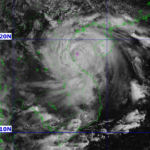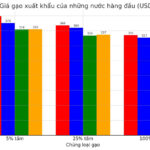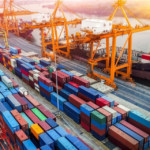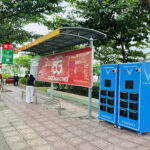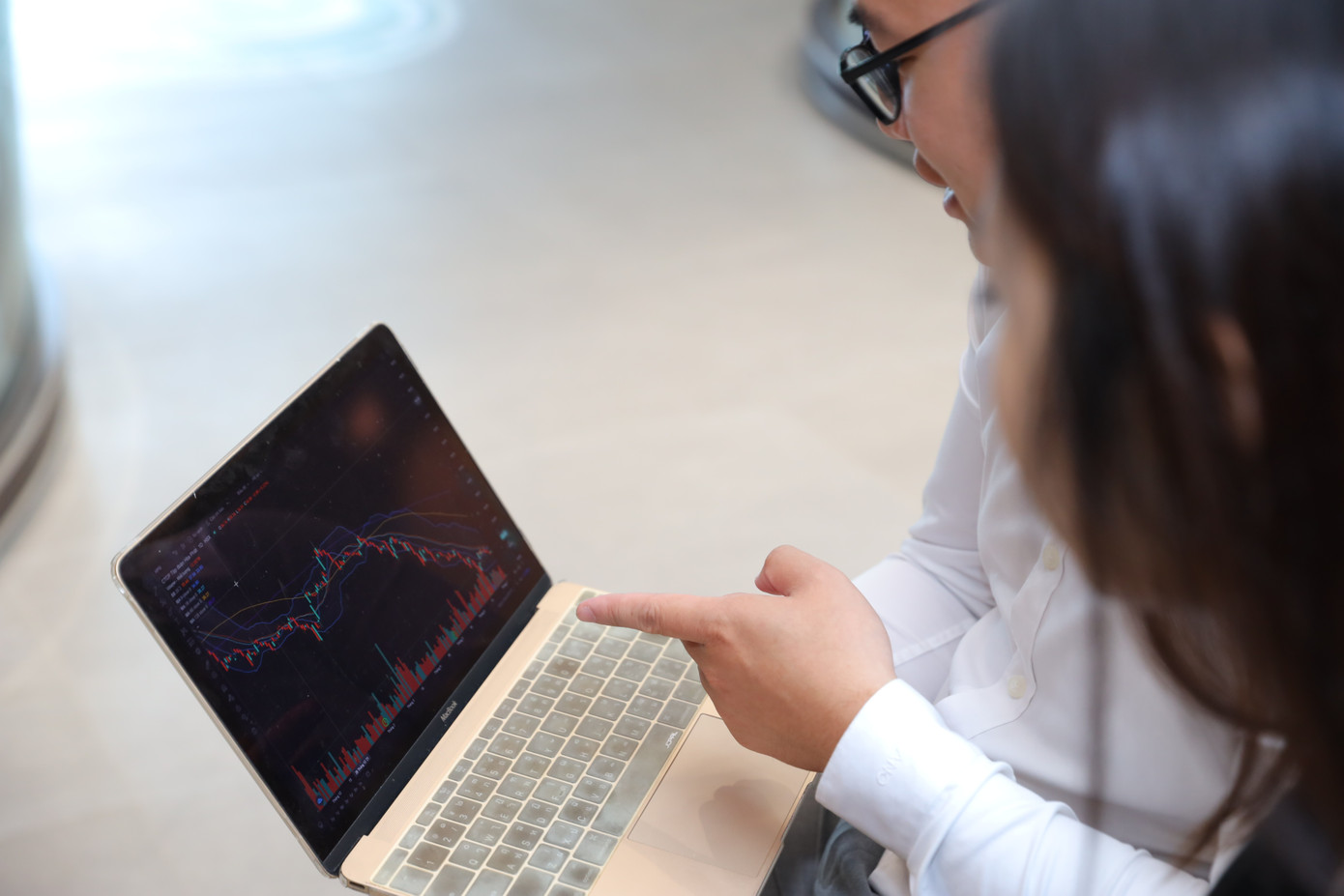Treasured Memories of Parliamentary Sessions
On August 27th, in Hanoi, General Secretary To Lam hosted a gathering of nearly 2,000 National Assembly delegates from various terms.
In his speech, General Secretary To Lam emphasized that through two prolonged resistance wars, national unification, and the country’s construction and defense, the National Assembly has always accompanied the nation. Reflecting on the past 80 years, the development journey of Vietnam’s National Assembly has been one of steadfastness, creativity, and continuous innovation.
Expressing his sentiments, the General Secretary described the gathering of nearly 2,000 delegates, including those with silver hair, as a “treasury” of parliamentary memories and a “living library” of Vietnam’s legislative history.
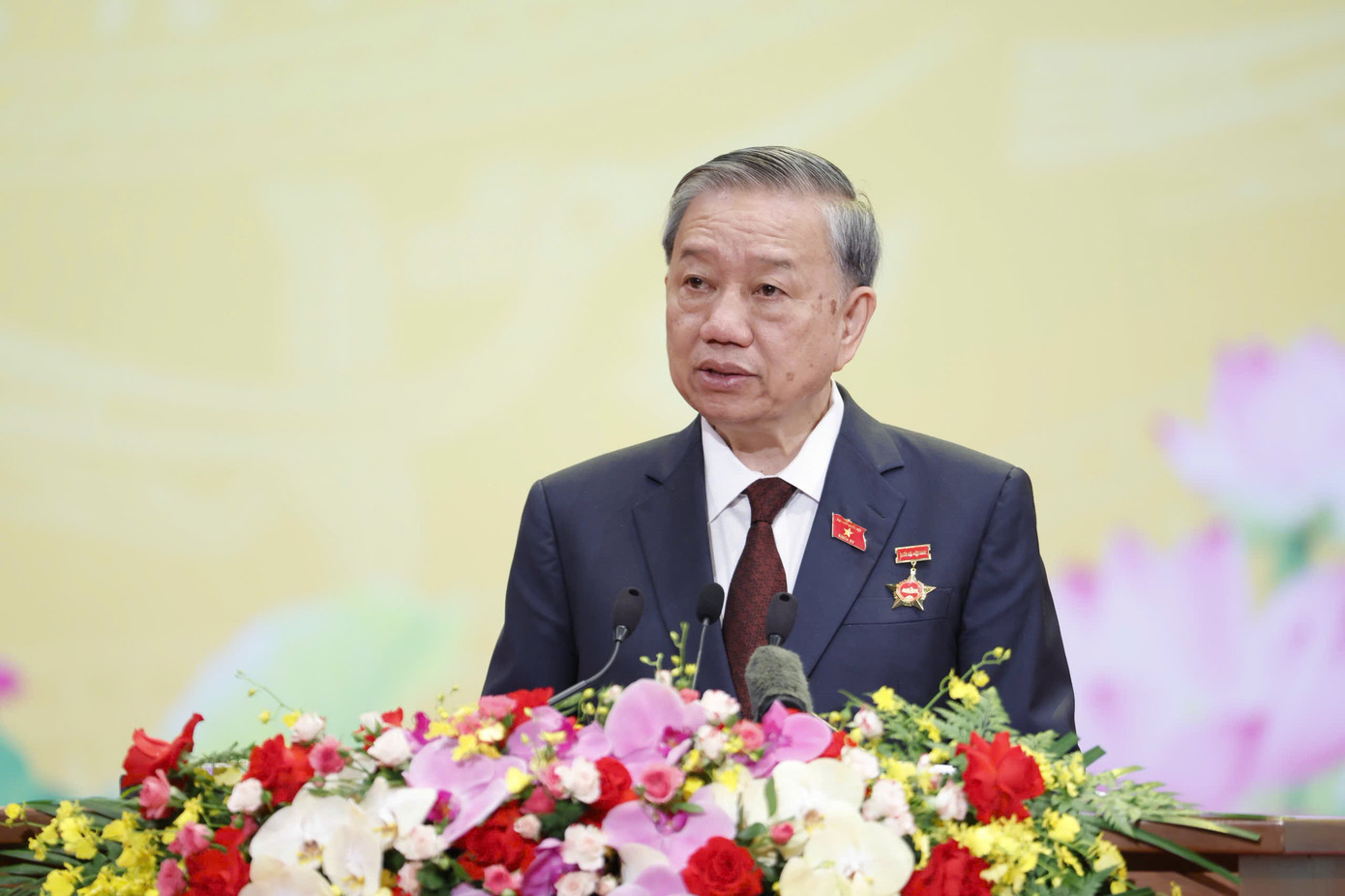
General Secretary To Lam delivers a speech. Photo by Nhu Y
During the event, the General Secretary also took the time to share some achievements and development orientations for the country in the upcoming period.
According to the General Secretary, after two months of operation, the machinery of organizations, agencies, and units within the three-tier political system, especially at the communal level, has been functioning harmoniously and effectively, essentially meeting the demands and serving the people better and more conveniently. The connection between the central, provincial, and communal levels is gradually being refined within a new administrative entity.
General Secretary To Lam highlighted that the reorganization of the apparatus has led to more efficient and intelligent social and local governance, along with robust and far-reaching administrative reforms that are closer to reality, enabling faster and better service to the people.
Notably, the new organizational structure has brought about clearer roles, responsibilities, and accountability, with a stronger focus on the needs of the people.
Additionally, the streamlining process has resulted in budget and resource savings for the state. More importantly, it has created a new space, opportunity, and momentum for development, setting the stage for the nation’s “take-off.”
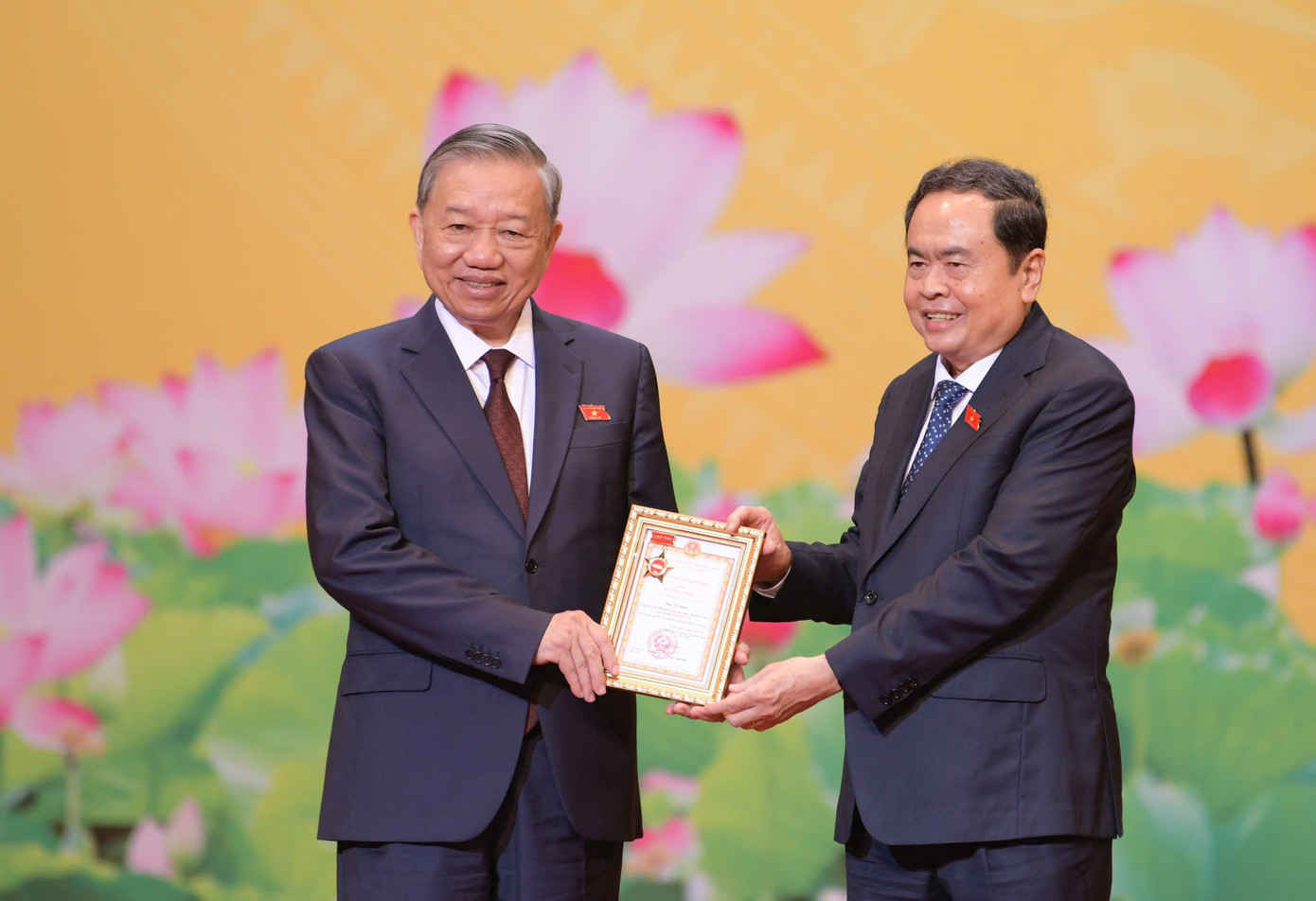
National Assembly Chairwoman Tran Thanh Man presents a commemorative medal to General Secretary To Lam. Photo: Nhu Y
Furthermore, the General Secretary mentioned that never before has the Party and State invested so much in national defense and security as they do now. Both the military and the police have been reorganized to be more streamlined and robust, and the national defense and security posture has been arranged to align with the country’s new development space…
“I hope that the military parade on September 2nd will showcase a portion of the people’s armed forces’ strength to our comrades,” the General Secretary stated.
“As our intrinsic strength is currently at the regional level, our position and role on the international stage have been significantly elevated,” emphasized General Secretary To Lam.
Preparations for the Historic 14th Congress
According to the General Secretary, the 14th National Congress of the Party is expected to be held in the first quarter of 2026.
Up to this point, the Central Committee has been actively preparing for the 14th Congress to be a historic event, marking the beginning of a new era of national prosperity, sustainable development, and improved living standards for the people.
Regarding the personnel of the 14th Central Committee, the General Secretary shared that the Party’s principle is to prioritize the quality of Central Committee members.
Simultaneously, there will be an appropriate quantity and structure to meet the requirements of comprehensive leadership, with a focus on strengthening Central Committee members in critical positions, domains, and priority areas.
The projected ratio of Central Committee members (including official and alternate members) is as follows: young officials under the age of 47 will account for over 10%; female officials will comprise approximately 10-12%; and ethnic minority officials will make up around 10-12%.
The selected individuals must be truly exemplary, upright, bold in thought and action, willing to take responsibility and make sacrifices for the collective good, and always put the interests of the collective, the people, and the nation first…
Emphasizing the role of the National Assembly, the General Secretary stated that it must stay ahead in terms of institutions and be bold in paving the way, making corrections, and deciding on difficult issues, new matters, and unprecedented areas.
“In the context of intense strategic competition and complex climate change, coupled with breakthroughs in science and technology, we cannot afford to ‘lag behind,'” he asserted. “We must ‘keep up with the times,’ and even ‘forge ahead’ in certain specialized fields.”
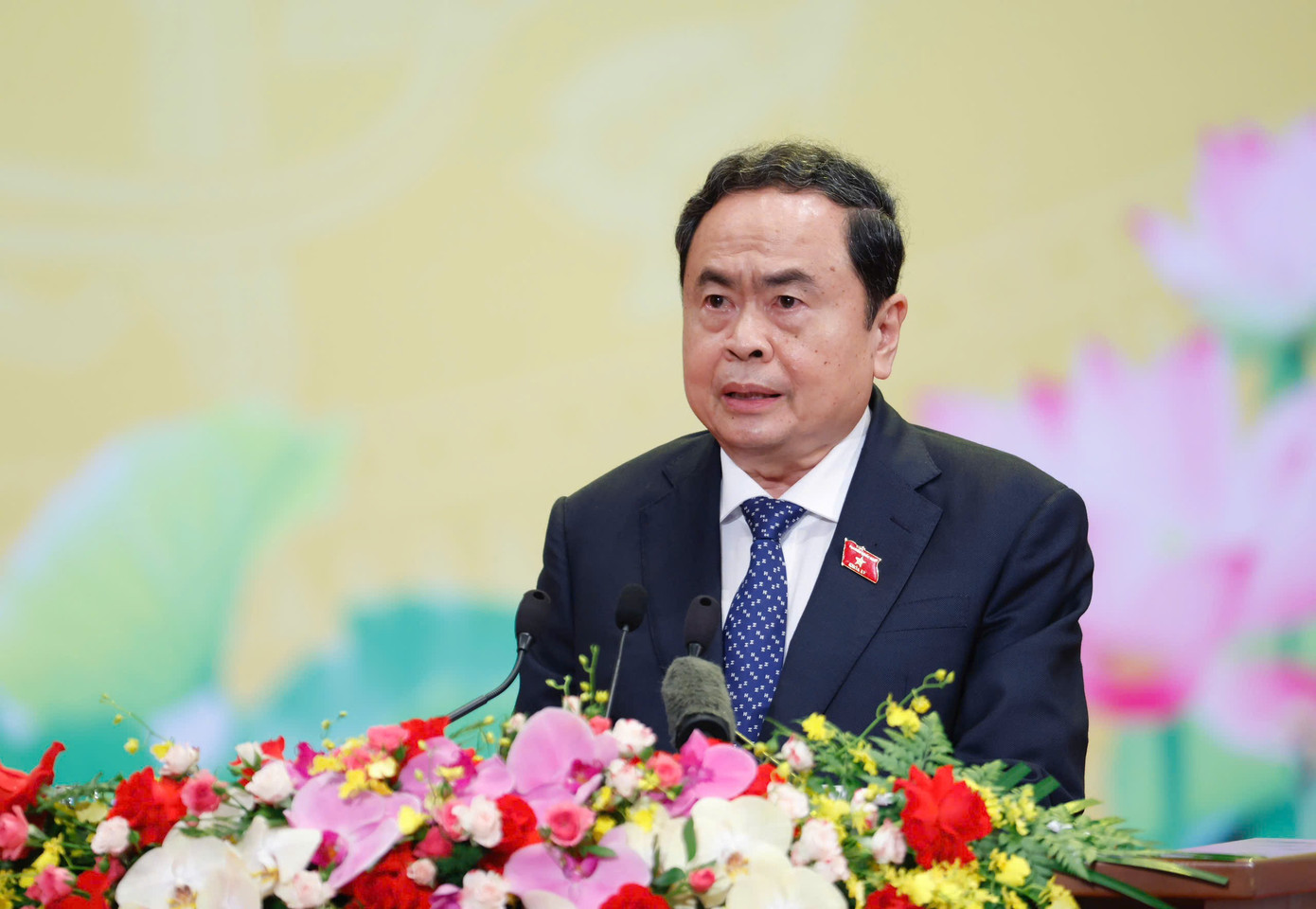
National Assembly Chairwoman Tran Thanh Man. Photo: Nhu Y
Activating the Whole Sector: Prioritizing Dam Safety and Essential Supplies for Typhoon Response
Amid the extremely perilous situation posed by Typhoon No. 5, with its intense strength and wide-reaching impact, the Ministry of Industry and Trade sprang into action. On August 23 and 24, 2025, the Ministry issued two urgent dispatches, calling for swift and decisive action from the entire industry to tackle the impending disaster with the utmost urgency and proactivity.
The World’s Most Expensive Rice is in Vietnam
The Vietnamese rice industry continues to dominate global markets with its premium-quality fragrant rice. With the highest prices among the top four rice exporters, Vietnam’s rice sector is thriving and leading the way.
A Tasty Trade: Vietnamese Produce Exports to the US Soar by 67%, Reaping Over $300 Million
In the first seven months of the year, the United States significantly ramped up its imports of Vietnamese fruits and vegetables, witnessing a remarkable surge of 67% compared to the same period last year.

